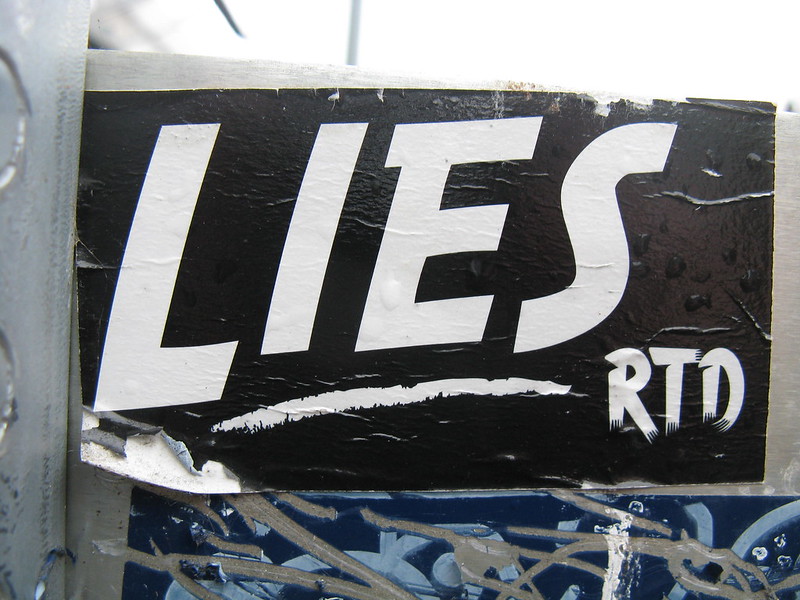
Image Credit: Cat Branchman
Honesty is soooo overrated. When we are asked to give a speech, we know what we need to do in order to deliver a good speech. We need to make sure that we know who will be in the audience, we have to sit down and create a speech that will allow us use the importance of public speaking to connect with our audience, and then we have to get up there and deliver it in a way that will allow us to clearly communicate what we are trying to say. How hard could all of that be to do? It turns out that it becomes a lot harder when we are telling ourselves things that just are not true. Our lies can have a negative impact on our speech and we really should stop saying things like this to ourselves.
Fancy Software Can Make My Speech Better
Isn’t this modern age that we are living in grand? There is an app for just about everything. All too often speakers think that if they go out and purchase the most expensive software with all of the bells and whistles, the speech that they will give will be that much better. The reality is that your speech is not about the tools that use to deliver it with, rather it’s all about your message and the stories that you use to capture your audience’s imagination. Forget all of the PowerPoint, Prezi, and Keynote templates, animations, and images that you can use and instead focus on what you really want to tell your audience.
I Must Be Perfect For My Audience
As speakers we are all tempted to practice, practice, practice our speech until we have a shiny speech that has no flaws. The problem with doing this is when we give that speech, our audience will be presented with a polished version of you that has no flaws and whom they really can’t relate to. A much better approach to giving a speech is to work on coming across to your audience as being credible. No, you don’t have to be perfect. Instead, you have to be believable and your audience has to be able to understand why you are willing to get up in front of them and talk about your topic.
There Is No Need To Practice
All too often speakers think that they are so passionate about their topic that they really don’t have to practice their speech. Instead, they think that they’ll just get up in front of their audience and their passion will allow them to speak directly from their heart. Although this may be true, in order for their audience to really connect with them, how they say what they say is very important. The only way that a speaker is going to get good at saying what they want to say is by taking the time to practice their message. No, it’s not easy or fun to do, but it is the right way to give a good speech.
It’s All About The Speech Content
A lot of speakers really believe in what they will be talking about. It can be easy for them to think that since their message is so important that the message by itself will be able to carry the show. It turns out that this is not the case. Any speech that we give is really a collection of different things all working together: an audience, a message, a delivery, and passion. Yes, content is important but we have to remember that there’s more to delivering a good speech than just what we’ll be talking about.
Slides Are Bad
I must confess that I often tell myself this lie. Somehow, somewhere we’ve been told that a presenter should minimize the number of slides that he or she uses in their presentation. When we listen to ourselves telling this lie, what we’ll do is shrink the number of slides in our deck down as far as we can. However, this doesn’t change the amount of information that we want to share with our audience. That means that we then go ahead and load up the remaining slides with far too much information. In the end, we may end up making the ultimate speaking mistake and reading from the slides during our presentation. Nothing could be worse.
Your Audience Is Stupid
I’m pretty sure that we’ve all heard this advice: tell ’em what you’re going to tell them, tell them, and then tell ’em what you told them. The thinking is that your audience has to hear the same information from you three times in order for it to sink in. As a speaker, it’s really your job to just get it right the first time. You should be able to tell your audience something and have them pick up on it. If you have to repeat yourself, then you didn’t do a good job of sharing your information the first time.
What All Of This Means For You
Every time that we stand before an audience, we’d like to do our best to deliver the benefits of public speaking. However, it turns out that there are cases where we may actually be working against ourselves. We may be telling ourselves lies that we think will make us a better speaker but which in reality will end up harming our presentation. The only way that we can stop this from happening is to become aware of the lies that we tell ourselves and take action to stop listening to ourselves when we whisper them in our ears.
One sexy lie that we like to tell ourselves is that if we get ahold of the most modern software tools, our next presentation will be that much better. The reality is that our presentation is all about our message and how we present it really won’t have that much of an impact. We may think that our audience is looking for a polished perfect presenter. However, the reality is that our audience really wants to connect with us and they can only do this if we can come across as being real and genuine. Presenters who think that their topic is so strong that they don’t have to take the time to practice are making a mistake. How you deliver your message is critical and you can only get better at doing this by taking the time to practice how you say it. The content of your speech is important, but it’s not the most important thing. A speech is made up of many moving parts and you have to master all of them. Limiting your slides to just a few can result in overloaded slides that temp you to talk from them during your presentation. Repeating what you’ve told your audience over and over again is a classic technique that no longer works.
Speakers need to understand that every time that we give a speech, we are there to serve our audience. We need to take the time to understand what they want to hear and how they want to hear it. Instead of trying to come across as a polished professional, it is better for us to create a genuine message and then deliver it from the heart. By doing this you’ll have a chance to connect with your audience and you’ll have an opportunity to have them walk away having been changed by your speech.
– Dr. Jim Anderson
Blue Elephant Consulting –
Your Source For Real World Public Speaking Skills™
Question For You: Do you think that you should just skip the slides so that you can better connect with your audience?
P.S.: Free subscriptions to The Accidental Communicator Newsletter are now available. Subscribe now: Click Here!
Note: What we talked about are advanced speaking skills. If you are just starting out I highly recommend joining Toastmasters in order to get the benefits of public speaking. Look for a Toastmasters club to join in your home town by visiting the web site www.Toastmasters.org. Toastmasters is dedicated to helping their members to understand the importance of public speaking by developing listening skills and getting presentation tips. Toastmasters is how I got started speaking and it can help you also!
What We’ll Be Talking About Next Time
Pity the poor speaker. All that he or she has to work with during their speech is words. It is their challenge to find a way to draw their audience into their speech and make them experience what they have experienced only using words. In order to make this happen, we need to find a way to paint a “verbal picture” with the words that we use. We want our words to create a mental image in the mind of each member of our audience. Just exactly how can we go about making this happen?

